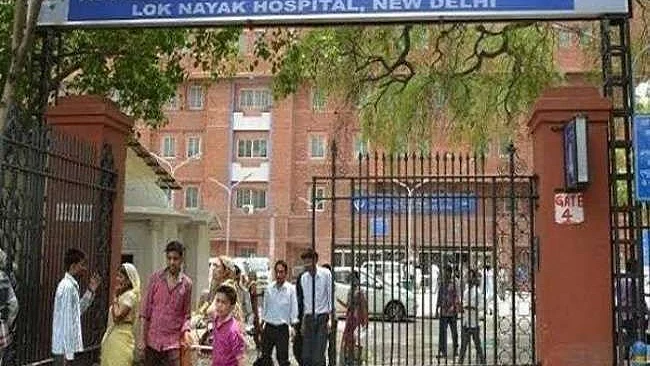Corporate hospitals still out of the picture
Most private hospitals have shut down, their staff are in self-quarantine. But while government hospitals bear the brunt, in urban India there is no escaping private hospitals

Amonth into the world’s biggest lockdown, India swings between hope and fear even as cases (20,000) and deaths (600) on April 21 pointed towards a reasonable control. But symptoms and forecasts indicate a high probability of the country faring a lot worse in May. The World Health Organisation (WHO) too has warned that ‘the worst is ahead of us’.
The tottering public health system, government hospitals, dedicated doctors and medical professionals, including the low paid support staff, have borne the brunt so far. More than 100 of them have been infected, nearly a dozen have succumbed across the country and many have been beaten up by relatives or friends of patients.
The role of the private hospital sector has been minimal, mostly into testing and a few corporate chains extending isolation facilities and handling very few cases so far. India will however need the active participation of the private sector in dealing with the outbreak for several reasons. In the last two decades, the growth of private hospitals, especially in urban areas, has been pronounced and in many cases at the cost of public healthcare. Most private hospitals have also benefited from Govt incentives and support with an understanding that they would serve a percentage of the poor free in return. And corporate hospitals have created multispeciality expertise and drawn medical talent away from Govt hospitals. In towns, private nursing homes dominate.
The main battlegrounds at present are the Metros—Mumbai, New Delhi, Chennai which account for nearly 50 per cent of the cases. Hyderabad, Bengaluru, Ahmedabad, Indore, Lucknow etc are the next big centres where the virus is posing serious challenge. Incidentally, these are also the places where private sector healthcare has been thriving at the expense of the growth of the public sector for decades now.
The noted cardiologist and chairman of the Narayana Hrudayalaya, which has a multi city chain with thousands of beds and specialists, Dr Devi Shetty has been proactively suggesting an integrated strategy involving Govt hospitals, diagnostics centres, specialised COVID hospitals and critical care centres. Perhaps, it’s prudent to draw up the private players in different cities to play an appropriate role.
This could have been instrumental in avoiding the recent experiences of a leading private hospital being closed in Mumbai when more than 25 medical staff including doctors tested positive. In Chennai, the Managing Director of a private hospital, Dr Simon died after treating several patients and so was the case with another doctor. In both cases, their families had a tough time arranging burials as superstitious people felt that burying the bodies would still infect them somehow.
Barring a few hospitals like Fortis andMedanta in Delhi, the Apollo chain, Narayana Hrudayalaya , AMRI in Kolkata, Yashoda Group in Hyderabad and Wockhardt, Mumbai, to name a few, most corporate hospitals are undecided about their role in meeting the crisis. They are anyway losing out because of a steep fall in regular patients and maintenance costs & salaries will take a toll on their financial health in the coming months.

Two major deterrents cited by private hospital executives are inadequate supply of PPEs and quality sanitisers, willing nursing staff besides the absence of clearly laid down standard operating procedures and assurance of financial support for the long haul. Many corporate hospitals have been claiming pressures on margins have pushed them into trouble and in recent years several have sold off majority stake to hospital groups from Malaysia.
Governments of Chhattisgarh, Punjab and Odisha have taken over all private hospitals to deal with the crisis. According to the recent National Family Health Survey-3, the private medical sector remains the primary source of healthcare for 70 per cent of the households in urban areas and 63 per cent of homes in rural India.
The national health policy document shows that the private sector accounts for 90% of all hospitals (up from 8% in 1947), 60% of all beds, and 80-85% of all doctors. Over 70% of an ailing population in rural areas and almost 80% in urban areas seem to utilise private facilities now. The sooner, the plan to integrate the services of private hospitals is finalised, the better therefore.
(The Author is a senior journalist and science writer based in Hyderabad)
Follow us on: Facebook, Twitter, Google News, Instagram
Join our official telegram channel (@nationalherald) and stay updated with the latest headlines
Published: 24 Apr 2020, 3:38 PM
